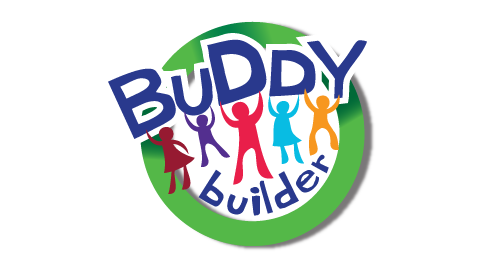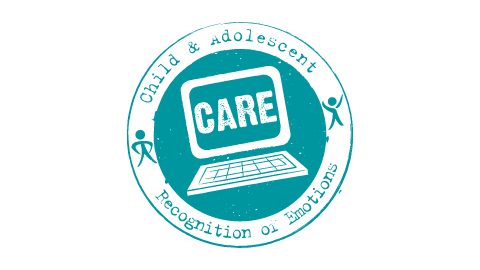FOCUS AREAS
Preventing violence is a key concern for every school, youth-serving organization, and community; and it requires not only reducing violent behaviors, but also promoting positive behaviors that can buffer against the risk factors encountered by youth. iRT is dedicated to developing effective, scalable, developmentally appropriate, engaging interventions to address the issue of interpersonal violence.
Youth violence is a devastating problem that affects not only victims of violence, but also their families, friends, schools, and communities. Youth violence can take many forms, from subtle cyberbullying, to physical fighting, to sexual and relationship violence. In 2016, more than half a million youth were treated in emergency rooms for injuries incurred through violence. Preventing youth violence requires using multifaceted, strategic approaches that involve theoretical and practical understanding of how to curtail negative behaviors, foster positive cognitions, and promote social-emotional competence.
Given the multifaceted and multimodal nature of youth violence, iRT has developed conceptually-grounded, innovative, research-informed resources to prevent a range of different forms of violence.
iRT has cultivated a portfolio of research and resources in the youth mentoring field. For the past several years, the Office of Juvenile Justice and Delinquency Programs has awarded youth mentoring programs with hundreds of millions of dollars in an effort to provide youth with relationships with caring adults, who are supported by strong organizations utilizing best practices in the mentoring field, that would ultimately result in reduced involvement in the juvenile justice system. iRT has developed multiple resources to support mentoring programs in optimally delivering these types of mentoring services. For example, iRT developed a suite of research-informed and evidence-based courses for mentors, mentees, parents or guardians of mentees, and mentoring program staff members; a software system to assess and evaluate the use of benchmarked program practices; and are working with mentoring programs on special topics emerging in today’s world into their program delivery (e.g., e-Mentoring, anti-bullying, support to opioid-affected youth). iRT uniquely offers this suite of training, assessment, and evaluation resources to the positive youth development field through its eCommerce platform. In addition, iRT conducts outcome evaluations with many youth-serving mentoring programs to assess how the youth they serve are changing and growing across the life of their mentoring relationship, including examining changes in aggressive behavior over time.
Dr. Alison Parker conducts research on school-based and online mindfulness programs that aim to reduce aggression and create more peaceful social climates through improving children and adolescents’ social-emotional and self-regulatory abilities. In addition, Dr. Parker conducts research on assessments related to aggression, emotion recognition, and social information processing in children and adolescents.
Dr. Rebecca Stelter conducts research on youth mentoring, assessing social information processing skills, and social-emotional learning interventions implemented in afterschool settings, and aimed at reducing antisocial behaviors in children.
Dr. Janis Kupersmidt conducts research on contextually-based social cognitive interventions to prevent fighting; assessing emotional recognitions and social information processing skills in children and adolescents; mindfulness education; media literacy education for relationship health and violence prevention; youth mentoring; and the custom development and delivery of social-emotional learning interventions implemented in afterschool settings.
Dr. Katie Stump conducts research on youth mentoring, including incorporating anti-bullying concepts into mentoring curricula, and social-emotional learning interventions implemented in afterschool settings.
Dr. Tracy Scull conducts research on factors associated with violence in romantic relationships and the use of media literacy education to prevent or reduce this type of violence.
Dr. Christina Dodson conducts research on factors associated with violence in romantic relationships and the use of media literacy education to prevent or reduce this type of violence.
RELATED PROJECTS
RELATED PUBLICATIONS
RELATED PRODUCTS
RELATED PRESENTATIONS
Kupersmidt, J. B., Stump, K., & Stelter, R. L. (2019, April). The Buddy Builder Program: Integrating social-emotional learning into enrichment activities in elementary afterschool programs. Workshop presented at the Synergy Conference, Greensboro, NC.
Kupersmidt, J. B., Stump, K., & Stelter, R. L. (2019, March). Evaluation of the Buddy Builder afterschool program for promoting social-emotional skills in elementary school-aged children. Poster presented at the biennial meeting of the Society for Research in Child Development, Baltimore, MD.
Parker, A. E., Smith, R. K., Kupersmidt, J. B., & Reeder, L C. (2019, March). Emotional self-efficacy beliefs in late elementary school-aged children. Poster presented at the biennial meeting of the Society for Research in Child Development, Baltimore, MD.
Kupersmidt, J. (2018, April). The role of social cognitive strengths in buffering the effects of risk exposure on children of incarcerated parents. Paper presented at the 2018 National Conference on Children on Incarcerated Parents, Phoenix, AZ.











